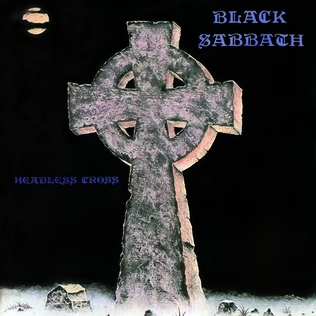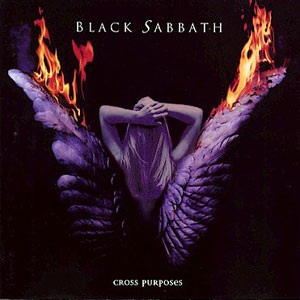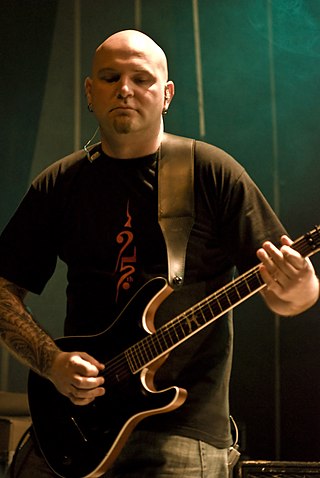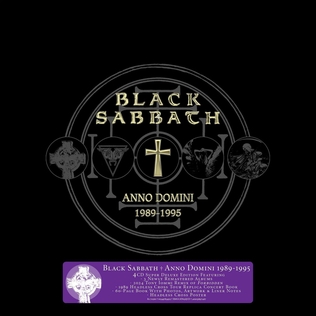
The terms anno Domini (AD) and before Christ (BC) are used when designating years in the Julian and Gregorian calendars. The term anno Domini is Medieval Latin and means "in the year of the Lord" but is often presented using "our Lord" instead of "the Lord", taken from the full original phrase "anno Domini nostri Jesu Christi", which translates to "in the year of our Lord Jesus Christ". The form "BC" is specific to English, and equivalent abbreviations are used in other languages: the Latin form, rarely used in English, is ante Christum natum (ACN) or ante Christum (AC).
AD is a designation used to label years following 1 BC in the Julian and Gregorian calendars.
AD 1 (I) or 1 CE was a common year starting on Saturday or Sunday, a common year starting on Saturday by the proleptic Julian calendar, and a common year starting on Monday by the proleptic Gregorian calendar. It is the epoch year for the Anno Domini (AD) Christian calendar era, and the 1st year of the 1st century and 1st millennium of the Christian or Common Era (CE).
AH and variants may refer to:

Headless Cross is the fourteenth studio album by English rock band Black Sabbath. Released in April 1989, it was the group's second album to feature singer Tony Martin, the first to feature drummer Cozy Powell, and the only album with session bassist Laurence Cottle.

Tyr is the fifteenth studio album by English rock band Black Sabbath, released on 20 August 1990 by I.R.S. Records.

Attila Gábor Csihar, also sometimes known as Void, is a Hungarian extreme metal vocalist, best known for his vocal work in Norwegian black metal band Mayhem and American drone metal band Sunn O))). Author Ian Christe describes his vocals as "operatic".

Cross Purposes is the seventeenth studio album by English rock band Black Sabbath, released through I.R.S. Records on 31 January 1994. The album marked the return of Tony Martin as the band's lead vocalist, after the second departure of Ronnie James Dio.
Dominus or domini may refer to:

Forbidden is the eighteenth studio album by English rock band Black Sabbath, released on 5 June 1995. This recording saw the reunion of Black Sabbath's Tyr-era line-up from 1990, with the return of Neil Murray and Cozy Powell. It was the last album to feature Tony Martin on vocals and Geoff Nicholls on keyboards, and the last by the band until 2013 when Ozzy Osbourne and Geezer Butler returned for the album 13. The album sold 21,000 copies in the US in its first week and as of 2013, Forbidden has sold 191,000 copies in the US.

Tormentor is a Hungarian black metal band formed in 1986 in Budapest. They recorded their first album, Anno Domini, in 1988, but were unable to release it until the end of communist rule in Hungary. The album reached Norway through the tape-trading community. Following the suicide of Per Ohlin, Mayhem invited Attila Csihar from Tormentor to join the band; he was to perform the vocals on De Mysteriis Dom Sathanas. Tormentor split up in 1991. After a long break they reformed and released the more experimental Recipe Ferrum through Avantgarde Music in 2001, going on a long indefinite hiatus afterwards.

Nightwing is the fifth studio album by Swedish black metal band Marduk. It was recorded and mixed at The Abyss between October and November 1997 and released in April 1998 by Osmose Productions. The theme of the album was blood, as the band's following, war-related studio album's Panzer Division Marduk would be fire, and La Grande Danse Macabre would be death, forming a trilogy of "Blood, Fire and Death," an homage to Bathory's Blood Fire Death album.
Driven to Destruction may refer to:

Anno Domini High Definition is the fourth studio album by Polish progressive rock band Riverside and also the first full-length Riverside album that is separate from the Reality Dream suite. The album was released in Poland on Friday 19 June 2009 through Mystic Production and was released in Europe on 6 July 2009 through InsideOut. The album was a commercial success in the band's home country of Poland where it reached the top of the official album chart. The art design and direction was, once again, handled by Travis Smith.
Chakal is a thrash metal band from Belo Horizonte, Brazil. The band formed in 1985 and has to date released five albums through Cogumelo Records. Its debut record, Abominable Anno Domini, has been described as an "influential, genre-defining" example of Brazilian heavy metal.

Anno Domini are an Australian symphonic black, death metal band. Formed in 2005, the band's line-up as from 2016 was Michael Aldeguer on guitars, Amir Bukan on drums and keyboards, Dan Kendall on bass guitar, Danny Straughen on guitars and Andy Suppradit on vocals.

Piotr Grudziński was a Polish musician, mostly recognized as guitarist of the progressive rock band Riverside. He has also contributed to bands such as Unnamed and Groan.

Anno Domini 1989–1995 is a box set by British heavy metal band Black Sabbath, released on 31 May 2024. It includes four of five albums from the 1987–1997 Tony Martin-era of the band, with Headless Cross (1989), Tyr (1990) and Cross Purposes (1994) all remastered, and Forbidden (1995) remixed by guitarist Tony Iommi, making this the first time those albums have officially been reissued.
This page is based on this
Wikipedia article Text is available under the
CC BY-SA 4.0 license; additional terms may apply.
Images, videos and audio are available under their respective licenses.










